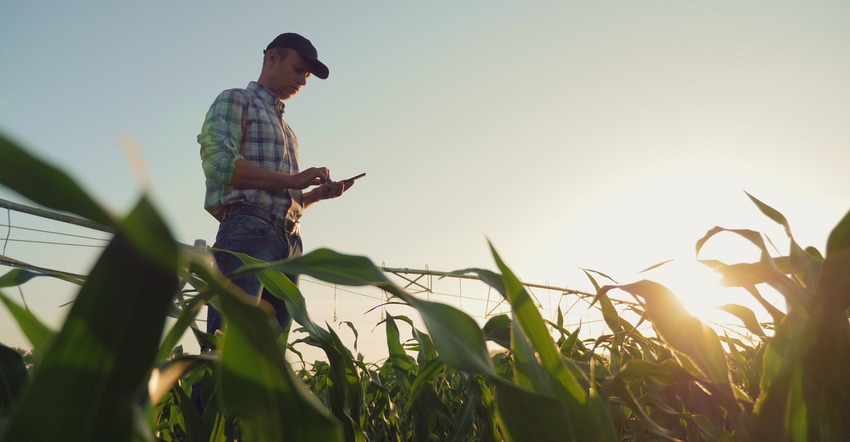
For many buyers, investing in farmland is a good way to generate income from leasing it out. Leasing land is important for landlords and tenants, but there are risks when it comes to leasing, says a Kansas State University graduate student who is conducting research on the topic.
Agricultural economics student Chelsea Arnold says 3,600 Kansas landowners recently completed a survey to look at their leases, risk preferences and attitudes toward young producers.
The average Kansas landowner is “around 68½ years old. About 74% of the respondents were male, [and are] kind of split between absentee and those that live within 25 miles of the land they lease,” Arnold says.
A fixed-cash lease is seen to have the least amount of risk, and a crop-share lease is seen as more risky by landlords, because the landlord helps pay for inputs and gets just a percentage of the profit. However, this can change depending on if the land is irrigated or nonirrigated.
Most landlords have an average of two tenants. The average leasing relationship is 15 years, she says.
“Landowners are saying they want to help young producers, and I believe they do,” Arnold says. “They say they can see young producers are at a disadvantage, and they want to help.”
The landowners view young producers as more risky, she adds, especially when the landowner does not have a connection to the tenant.
Results from a focus group and early survey results indicate that even though young producers are viewed as having more risk, landowners may not be inclined to charge higher lease rates.
“Given the results of this study, we hope a young producer can look at their area that they work in and maybe can see [that], ‘OK, the landowners in my area are kind of expecting me to … prove myself either through a resume with references, or through me meeting and talking to them, and [that] I am financially OK to kind of gain that trust,’” Arnold says.
Many times, once a young producer earns a good leasing reputation, it can create a long-term leasing relationship, according to Arnold.
More survey results are being compiled, she says. Arnold hopes the survey eventually will set a foundation for taking the time to match landowners to young producers.
See Arnold’s presentation, Leasing Land in Kansas: A Survey of Landowners, online.
Thomas County
In Thomas County, about 1,640 acres of crop- and grassland was sold at auction Sept. 14. The land sold in three adjoining tracts. Tract 1 was about 590 acres of cropland and sold for $2,800 per acre. Tract 2 was about 768 acres of grass and expired Conservation Reserve Program land, which sold for $1,400 per acre. Tract 3 was 279 acres of cropland, which sold for $2,450 per acre. All three tracts were located directly south of I-170, just east of Brewster, Kan. The sellers were David and Beverly Inloes. Farm & Ranch Realty, Inc., Colby, Kan., handled the sale.
Reno County
In Reno County, about 240 acres of dryland with non-cropland waterway and grass hay meadow sold at auction Sept. 7. The parcel, 1 mile west of Pretty Prairie, Kan., sold for $2,525 per acre. The seller were the Jack S. and Lelya M. Austin Trust, First National Bank of Hutchinson (trustee). Carr Auction & Real Estate Inc., Larned, Kan., handled the sale.
Rush County
In Rush County, a productive 40-acre tract of cultivated ground sold for about $2,000 per acre on auction Sept. 7. The ground, located a half-mile north of Otis, Kan., was attractive due to its location and access via a maintained county gravel road. The seller was Don Schlegel. Farmland Auction & Realty Co. Inc., Hays, Kan., handled the sale.
Kansas State Research and Extension contributed to this report.
Read more about:
Young FarmerAbout the Author(s)
You May Also Like






